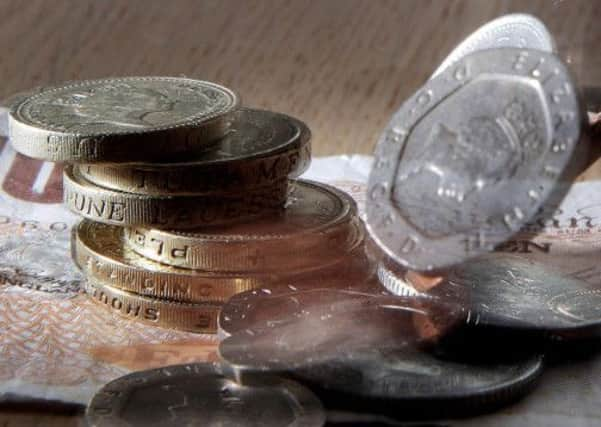Nine in ten Scots receive real-terms pay cut


The average pay rise in Scotland is just 0.7 per cent, but only four in ten workers will receive a pay rise at all this year, according to the study from price comparison website uSwitch.com.
Meanwhile, over half of Scottish workers have seen their pay frozen over the last 12 months, while 20 per cent have not received a pay rise for more than two years.
Advertisement
Hide AdAdvertisement
Hide AdInflation, by the Consumer Price Index (CPI) measure, ran at 1.9 per cent last month, down from 2 per cent in December.
However, despite the real-terms cut in wages, a quarter of Scots worked longer hours over the last year, the report found.
Despite a raft of positive economic data in recent months, over half of Scots said they were worried about their financial situation, while a fifth thought it would get worse this year.
“It’s now clearer than ever that consumers are struggling to keep afloat in the tidal wave of increased living costs,” said Ann Robinson, director of consumer policy at uSwitch.com.
“Yet no lifeline is being thrown by employers. In fact, things are looking even bleaker, with even more people facing a pay freeze this year than last.
“This reality is a far cry from the growing optimism that the Scottish economy is on the up – with over three-quarters of consumers’ wages not keeping up with inflation.”
The older generation are more likely to experience a pay freeze than their younger colleagues – 52 per cent of workers over the age of 55 have had a pay freeze in the last 12 months compared to 46 per cent of 35 to 54-year-olds and 36 per cent of those aged between 18 and 34.
UK-wide, the average pay rise in the private sector was 1.3 per cent but, for the public sector, the figure fell to only 0.7 per cent.
Advertisement
Hide AdAdvertisement
Hide AdThe report also uncovered that, nationally, higher earners will be receiving the biggest pay rises in 2014.
Those in the top 10 per cent, who earn more than £45,000 a year, will be getting an average pay rise of 2.4 per cent, whereas for those in the bottom 10 per cent, who earn under £7,500, it will be just 0.5 per cent.
Paul Crayston, spokesman for the Money Advice Trust Scotland, said: “Inflation rates for low-income households are likely to be much higher than the national average, as these households tend to spend a greater proportion of their income on energy, communications, water, and food – all of which have seen significant price rises in recent years. This has resulted in more debts owed to basic household bills.”
He added: “It is clear that many households are operating their own budget deficit, with more money going out than is coming in.”
Those in the north-east of England were most likely to receive a pay rise this year, with 54 per cent saying they expected to see salaries increase.
One in three Scots would consider moving to a different part of the UK if it would mean more pay, the report added.